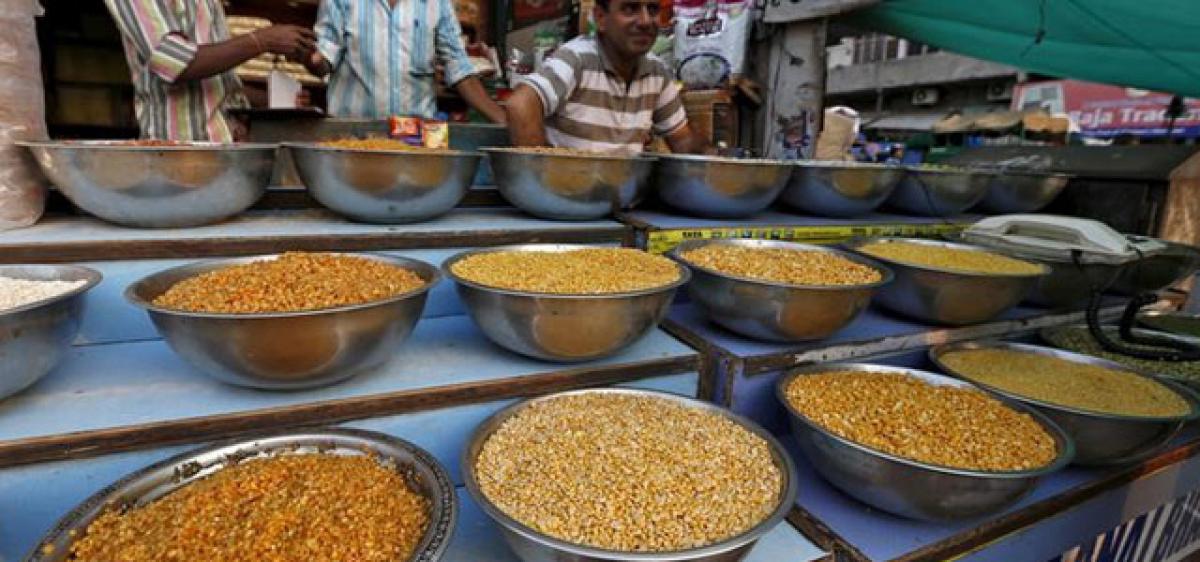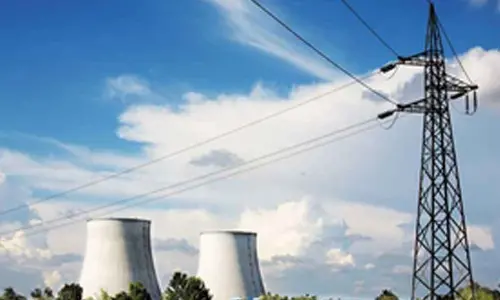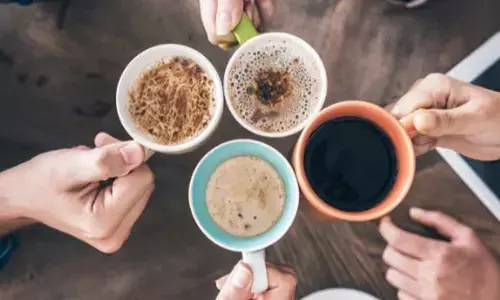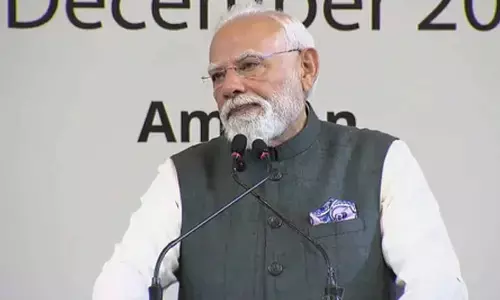Foodgrains cheaper under GST; over 80% items at 18%

Foodgrains and common-use products like hair oil, soaps and toothpaste as also electricity will cost less from July 1 when the GST is scheduled to be rolled out as the all-powerful GST Council on Thursday finalised tax rates for bulk of the items.
Srinagar: Foodgrains and common-use products like hair oil, soaps and toothpaste as also electricity will cost less from July 1 when the GST is scheduled to be rolled out as the all-powerful GST Council on Thursday finalised tax rates for bulk of the items.
While the Council fitted all but six items in 5, 12, 18 or 28 per cent tax brackets, cars will attract the top rate as also a cess in the range of 1 to 15 per cent on top of it. Smalls cars will be charged 1 per cent cess on top of 28 per cent tax, mid-sized cars will attract 3 per cent cess and luxury cars 15 per cent cess on top of the peak rate.
HIGHLIGHTS:
- 7% of the items fall under the exempt list
- Barring gold, GST rates decided on 1,211 items;
- Sugar, tea, coffee, edible oil to fall under 5% slab;
- Decision on gold, footwear, bidi, branded items today
Aerated drinks too have been put in the 28 per cent bracket but the rates for bidis along with gold, footwear and branded items would be decided on Friday. The Goods and Services Tax (GST) on coal has been brought down to 5 per cent from the current tax incidence of 11.69 per cent, thereby making electricity generation cheaper.
The GST rates for all but six items were finalised at the first day of the two-day meeting here of the GST Council, headed by Union Finance Minister Arun Jaitley and comprising state representatives.
Common use products like hair oil, soaps and toothpaste will be charged with a single national sales tax or GST of 18 per cent instead of present 22-24 per cent tax incidence through a combination of central and state government levies.
ACs and refrigerators will fall in the 28 per cent tax slab while life-saving drugs have been kept at 5 per cent rate. All capital goods and all industrial intermediaries would attract 18 per cent tax instead of 28 per cent. Milk and curd will continue to be exempt from taxation when the GST replaced current indirect taxes.
'Mithai' or sweets will attract 5 per cent levy. Daily-use items like sugar, tea, coffee (barring instant coffee) and edible oil will attract the lowest tax rate of 5 per cent, almost the same as current incidence.
Prices of foodgrains, especially wheat and rice, will come down as they will be exempt from the GST. Currently, some states levy Value Added Tax (VAT) on them.
"We have finalised tax rates for a majority of items as well as the exempt list at today's meeting)," Jaitley told reporters here. Out of the 1,211 items, the GST rate for all but six was decided on the first day, he said, adding the tax rate for items that would be decided on Friday include gold, footwear, branded items and bidi.
"Rates have been finalised for the rest," he said. Also, the GST for packaged food items is to be finalised. Friday's meeting will also decide on the rate of tax for services, the Finance Minister said.
"With the standard rate items of 12.5 per cent and 15 per cent, plus the cascading effect of local taxes, the tax rate was going up to 30-31 per cent. These 30-31 per cent taxes... have all been brought down to 28 per cent.
Of these, some are items to be used by common man soap, oil -- that has been brought down to 18 per cent. So there will be a substantial reduction as far as those items are concerned. We have kept one criteria in mind that the overall impact is not inflation, in fact it brings down the costs," Jaitley added.
Revenue Secretary Hasmukh Adhia said 7 per cent of the items fall under the exempt list while 14 per cent have been put in the lowest tax bracket of 5 per cent. Another 17 per cent items are in 12 per cent tax bracket, 43 per cent in 18 per cent tax slab and only 19 per cent of goods fall in the top tax bracket of 28 per cent. As many as 81 per cent of the items will attract 18 per cent or less GST.
On gold, states demanded a 4 per cent tax even though the rate is not among the 5, 12, 18 and 28 per cent approved bands. Jaitley said there will be no inflationary impact as most of the rates which are at 31 per cent have been brought down to 28 per cent.
Coal will attract the GST of 5 per cent as against the current tax incidence of 11.69 per cent."Cereals will be in exempt list. But what is to be done with packaged and branded food that has to be separately decided. We are yet to make a decision on that," he said.
Jaitley said the key feature of Thursday's rate decision has been that "tax rate under GST will not go up for any of the commodities. There is no increase. On many commodities, there is a reduction particularly because the cascading effect of tax is gone."
"Of several commodities, we have consciously brought down the tax. In the overall basket there would be a reduction, but we are banking on the hope that because of a more efficient system, evasion would be checked and tax buoyancy would go up. That despite reduction the revenue neutrality and tax buoyancy thereafter would be maintained," he added.














